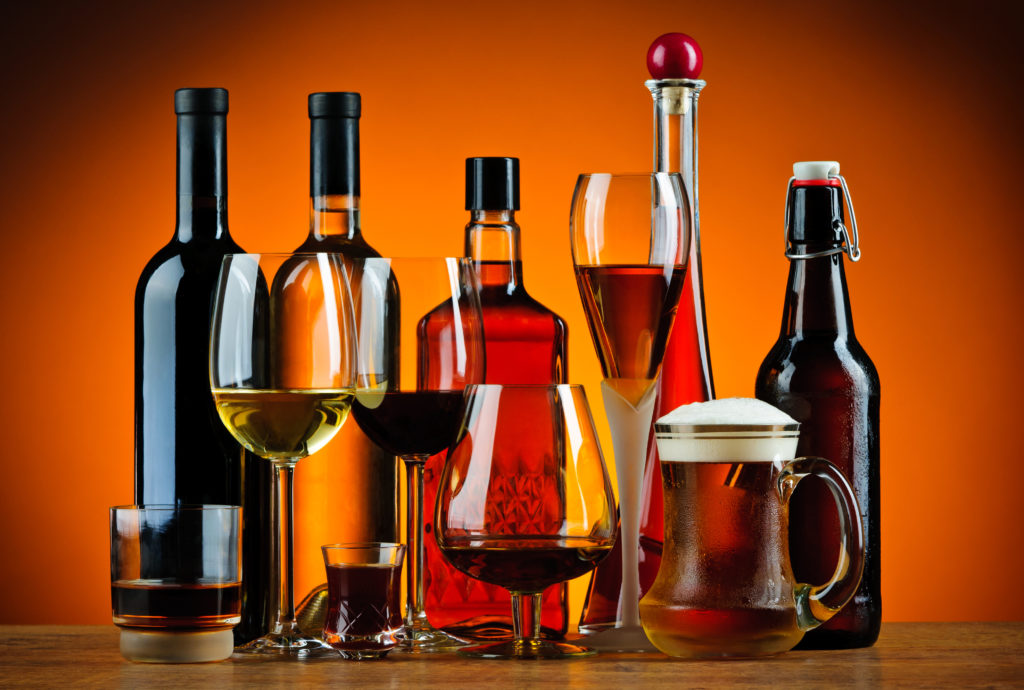Quick Hits
Daily brief research updates from the cognitive sciences

The tide seems to have turned on alcohol. Though we have always known that excessive alcohol consumption is negative there were for a long time inconsistencies with the research into modest levels of alcohol consumption – with multiple studies showing beneficial effects.
These effects could, however, be from other sources, such as the antioxidants in red wine, or the increased social contact through drinking with friends. I reported here on how alcohol even in modest amounts can lower life expectancy – gulp! However, mild amounts only had mild effects – that’s the good news for you (us) drinkers.
A new study just published has looked at correlations between alcohol consumption and iron levels in the brain. High iron levels in the brain is associated with various neuro-degenerative conditions such as Alzheimer’s and reduced cognitive function. The data was taken from the UK’s biobank and data from 21’000 people was analysed. This connects various lifestyle factors, personality, demographic, cognitive function, and is combined with brain scans and other biological data.
The researchers around Anya Topiwala of the University of Oxford found that more than seven units per week was associated with markers of high iron in a region of the brain called the basal ganglia. The basal ganglia is an important part of the brain associated with, amongst others, reward, but also motor control, and learning. This higher iron accumulation was associated with slower executive function, lower fluid intelligence, and slower reaction times.
There were other regions of the brain which showed higher iron levels, but they didn’t find strong and robust enough associations to deem these causal.
There are a number of caveats to the study we also know for example, that many people underestimate how much alcohol they drink. So, seven units is a very rough estimate.
However, this does show and support other research that shows even moderate alcohol consumption can have detrimental effects on the brain and cognition. Low to mild quantities though do show mild, if any, correlations to these declines.
So, the advice is simple – go easy on the drink!

Andy Habermacher
Andy is author of leading brains Review, Neuroleadership, and multiple other books. He has been intensively involved in writing and research into neuroleadership and is considered one of Europe’s leading experts. He is also a well-known public speaker speaking on the brain and human behaviour.
Andy is also a masters athlete (middle distance running) and competes regularly at international competitions (and holds a few national records in his age category).
Reference
Anya Topiwala, Chaoyue Wang, Klaus P. Ebmeier, et al.
Associations between moderate alcohol consumption, brain iron, and cognition in UK Biobank participants: Observational and mendelian randomization analyses.
PLOS Medicine, 2022; 19 (7): e1004039
DOI: 10.1371/journal.pmed.1004039
More Quick Hits
Being “Hangry” Really Is A Thing
Quick HitsDaily brief research updates from the cognitive sciences o, scientists have now proven that being “hangry” is real thing. What took them so long? Well, first of all things which seem intuitively right such as the weather making pain worse...
Reward Drives Aggressive Behaviour Against “Others”
Quick HitsDaily brief research updates from the cognitive sciences s vs. them is known as in-groups vs. out-groups in psychology. This is the well-known effect of people being loyal to their own groups and being competitive and often aggressive to...
Low Oxygen Impairs Decision-Making
Quick HitsDaily brief research updates from the cognitive sciences ast year I reported on how pollution and bad air in offices correlates with lower performance and productivity. Something business should take note of. A study out of the University...
The Brain Waves That Drive Social Behaviour
Quick HitsDaily brief research updates from the cognitive sciences have reported in other places on the social regions of the brain (for review see here). And this has indeed been the standard approach – try to identify the specific regions in the...
Being Mindful Improves Relationships With Co-Workers
Quick HitsDaily brief research updates from the cognitive sciences he topic of mindfulness has been a hot topic for a number of years now. This is not to be confused with meditation which is often lumped together with mindfulness – because they do...
Engaging Leadership Boosts Employee Engagement, and Team Effectiveness, and Resilience
Quick HitsDaily brief research updates from the cognitive sciences paper just out has looked again at leadership style and impacts on employee engagement and also various team effectiveness measures. Greta Mazzetti of the University of Bologna,...






